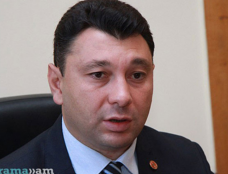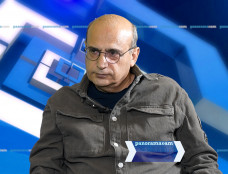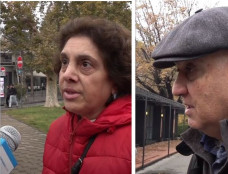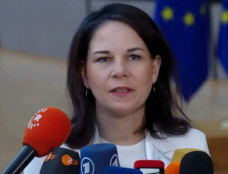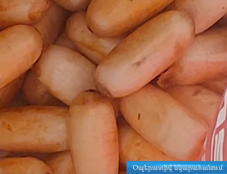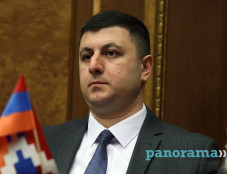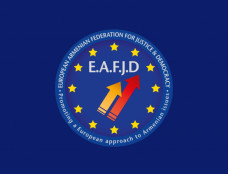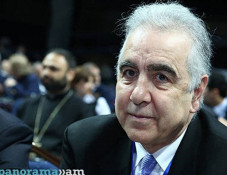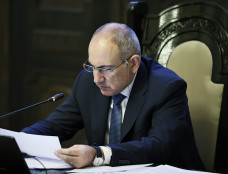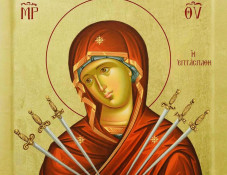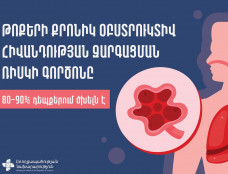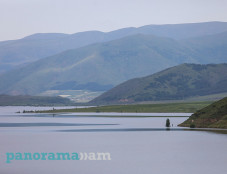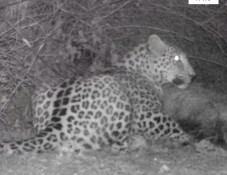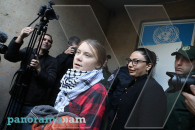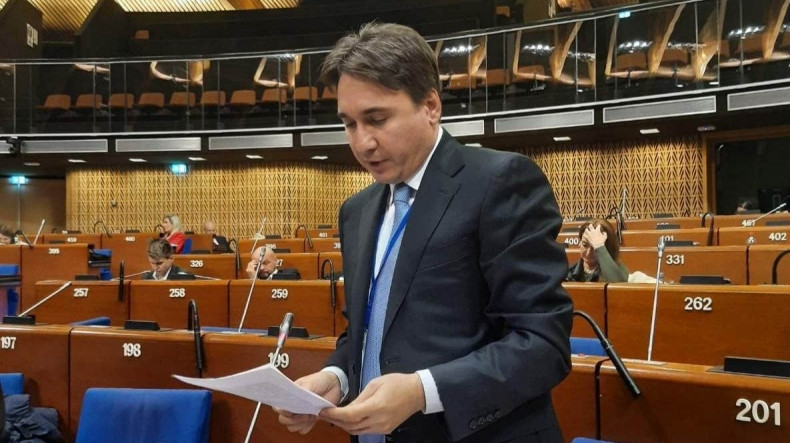
'Collective punishment of an ethnic group is a war crime', Armenian MP tells PACE
Armenian MP Armen Gevorgyan, a member of the Armenian parliament delegation to the PACE, delivered remarks on activities of the Assembly's Bureau and Standing Committee on Wednesday. His full statement is below.
“Mr President:
As you well know, for more than 40 days Nagorno Karabakh has been under siege by Azerbaijan. For the entire period of its membership in our organisation, Azerbaijan both in its domestic and foreign policy has been guided by political violence and war as tools and means of state policy. The Azerbaijani government has continuously pursued a policy of radical racism and ethnic cleansings against “the others” and specifically against Armenians.Another certain characteristic of state policy by Azerbaijan is the manipulation of its export potential of oil and gas to Europe as its unique asset. Each of us can determine whether such policy is fascism, national radicalism or state terrorism.
Today I would ask you to reflect on three fundamental dimensions.
1.The state policy of siege of 120.000 people, with daily threats of the use of force against them, is being implemented by a member of Council of Europe. The unpunished membership of Azerbaijan has resulted in further strengthening of a certain sense of impunity for this authoritarian regime and has turned our Organisation into a legitimising agency of its aggressive policy against Armenian people.
2.Many nations, represented in this Assembly, have recognised the Armenian Genocide of 1915. The siege of Nagorno Karabakh is the next stage of that crime, still denied by Turkey and Azerbaijan. This state policy by Azerbaijan shall be decoupled from any peace process there may be or will be: collective punishment of an ethnic group is a war crime, not a negotiation strategy that we shall endorse, and hence not condemning that clearly means aiding the commission of this crime, not diplomacy.
3.What is happening in Nagorno Karabakh today is not just a humanitarian catastrophe. It's now a bigger issue than just an Armenian-Azerbaijani affair, or self-determination issue of Nagorno Karabakh people. This is about a civilisational identity of Europe. It is now about a choice between, on one hand, democracy, dignity and peace, and “energy security”, shame and violations on the other hand. History tells us what the price for disgraceful choices is.
Mr President, let me conclude by saying that the Armenians in South Caucasus be that in Armenia or in Nagorno Karabakh under siege these days, for many centuries have created conditions for the preservation and development of not only our own, indigenous national culture and identity, but also helped many other nations to do so. Despite our geographic and demographic sizes and ongoing challenges, we will carry on this mission further whether someone likes it or not."
Newsfeed
Videos





